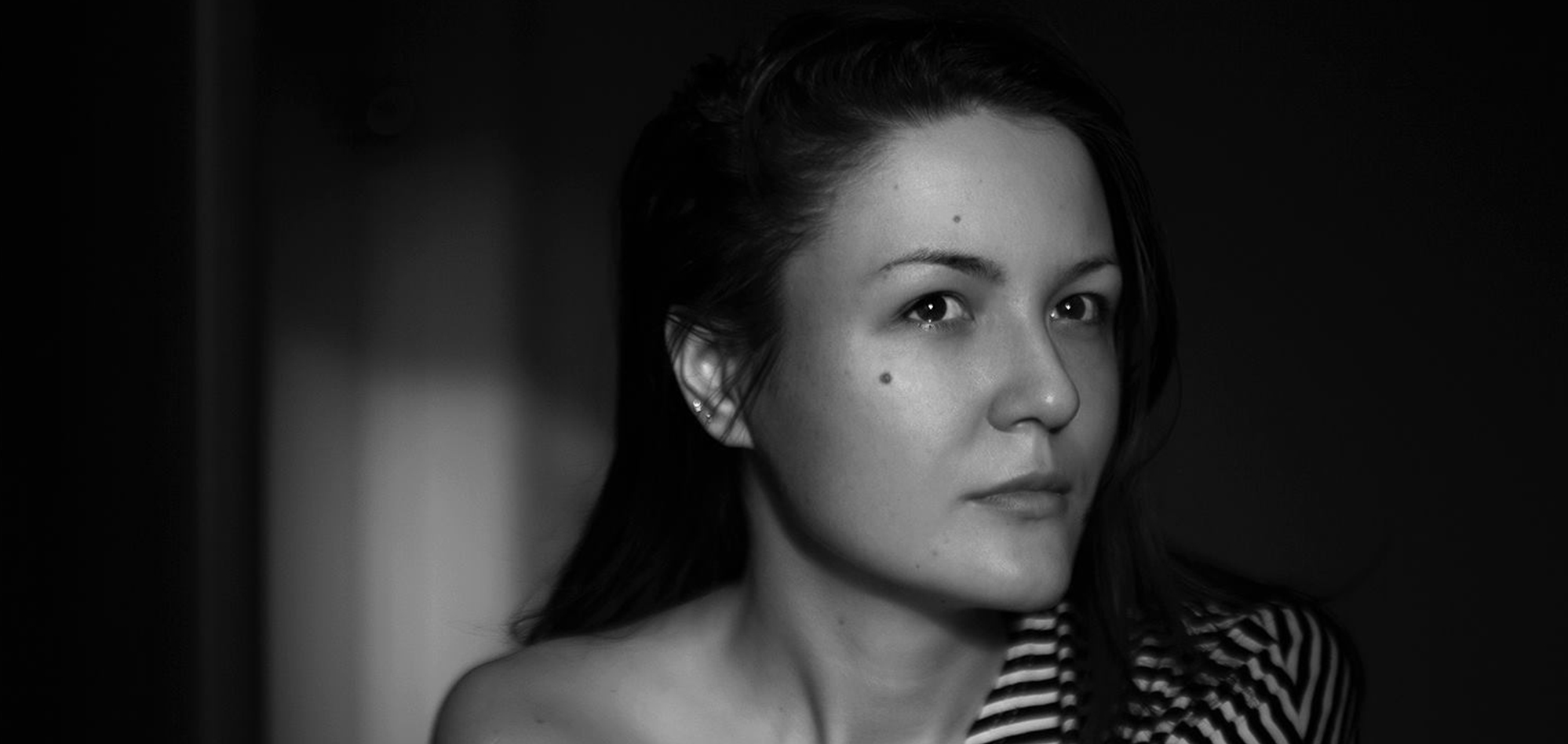Alexandra Ramires graduated in Painting from the Faculty of Fine Arts, University of Lisbon in 2010. She has been working in animation since 2009. In 2013, she arrived in Porto to work in the animation studios of the production company Bando Á Parte, which today has become a cooperative – BAP Animation Studio – of which she is a founding member. “Água Mole” is her first animation film co-directed with Laura Gonçalves and it premiered at the Cannes Festival Festival in 2017.
Tara Karajica talks to Alexandra Ramires about her first short film as a solo director, “Tie,” that premiered at this year’s Toronto International Film Festival as well as her thoughts on short films and women in film.
How did you get into filmmaking and what inspires you to make films?
Alexandra Ramires: I started working as a technician in animation shorts. The idea of earning money for drawing seduced me a lot. During my Painting studies, I started to develop my point of view about the world along with the desire to represent what surrounds me. But I always felt that I didn’t have the power of synthesis that drawing and painting require. And, having started working early on animation films, it made me see how valuable this form of expression was and how it reconciled drawing, painting, narrative and time. All this helped me communicate points of view, thoughts and feelings.
Can you talk about your short film Tie?
A.R.: The idea of adaptation is something that accompanies my thoughts. I wonder how far we should change to fit into either the world around us or our relationships or even work? Or should we put our foot down, assuming our worldview by defending it and not bowing to established standards? This is a delicate balance. Having this dilemma as a background, I created a visual metaphor where adaptation is possible between two disfigured characters with very different shapes. With a surrealist environment as a compliment to difference, adaptation, cooperation and Love.
How do you see the short form today?
A.R.: Having to think about formats, the short is the format that attracts me the most as a director and spectator for the space that is given to experimentation. Here, technique, narrative, theme and structure have a freedom that we do not find in feature films. However, they have much more difficulty in their distribution; they are not very sellable, which is also the reason that makes the short a freer format. It is frustrating that the success of our work is so often dependent on its format. If you have an idea that needs forty minutes to be told, it is very unlikely that it will reach screening and debate spaces like festivals. It simply doesn’t fit into the logic of programming and distribution. I think people like to watch short films, but an effective and self-sustaining way of getting short films to a wider audience has not been found yet. I don’t see the short as a path for the feature film. I see it as a format that lives by itself. Perhaps this is a more characteristic vision of animation, where the idea of making a feature film requires a pharaonic investment making the feature film a format that always has to have a great financial return and we have found in the short films a space for our poetry to breathe.
What is your opinion on the situation of women in film today?
A.R.: In the reality that surrounds me – animation Cinema in Portugal –, the disparity is not glaring, but the imbalance exists. There are more male directors than female directors, but this difference has been diluting. However, if I look at fiction films, I feel that reality is different. There are very few women in directing positions. Not being my way of working, animation Cinema can often be a lonelier job or a reduced team, as well as documentary, which has led many women to find their space here to make films. I say this because in fiction the figure of the director is clearly a more obvious leadership position, which has to coordinate larger teams with firmness and conviction. I often see the days of shooting being compared to military training, either by the hierarchies or by the demand and adrenaline. And as is common around the world, the positions of power, leadership and direction are not very receptive to women. While reading the book A Room of One’s Own by Virginia Wolf, where the writer argues that a woman has to have a corner of her own in order to write, I found the preface of Portuguese feminist writer, Maria Isabel Barreno, who had this sentence: “The ideal would be for women to write as women, forgetting that they are women.” I think that sums up my point of view. I think we can only appease ourselves with this gender discrepancy when we feel that we have exactly the same conditions to create as men, when it comes to educational opportunities, remuneration, domestic issues, physical and mental space. And especially when the subject is the work created and not the gender of who created it.
What are your next projects?
A.R.: The next film will be made together with a friend of mine, Laura Gonçalves, who I made my previous film with, where we will combine documentary and animation for the second time. The film is based on recordings of young fishermen from my hometown in southern Portugal and who chose to stay in a city completely dependent on tourism, trying to get around an addicted economy dependent on its visitors.
Photo credits: Alexandra Ramires.
This interview was conducted during the 2020 (virtual) Toronto International Film Festival.










